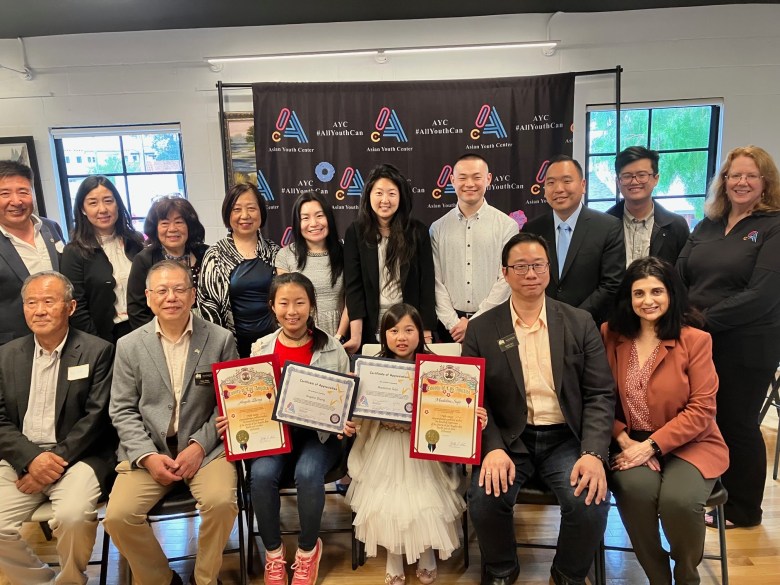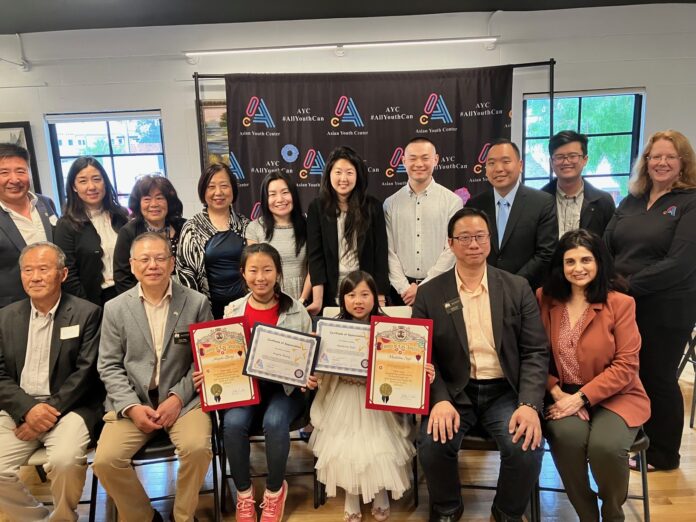By ANNAKAI HAYAKAWA GESHLIDER, Rafu Contributor
“We don’t have to keep our heads low. We stand against hate.”
These were the words of Anchu Biswas, community relations manager at the SoCal-based nonprofit Saahas for Cause.
Saahas assists South Asian immigrants by hosting English classes, workshops in citizenship preparation, and cultural festivals—to name a few. And in response to the rise of hate incidents and crimes targeting Asian Americans and Pacific Islanders (AAPI) during the Covid-19 pandemic, Saahas designed programs to intervene.
Staying true to its name (“Saahas” means “courage” in Hindi), Saahas for Cause employs therapists who offer counseling in the wake of racist attacks. The organization’s case managers can also refer survivors to other organizations for further services. It also began offering self-defense workshops.
Saahas also offers bystander training, for those who witness someone else being targeted. For workshops taught in English, volunteers who speak eight different South Asian languages offer interpretation. Many Saahas workshops are open to anyone, not only South Asian community members.
Like Saahas for Cause, the Long Beach-based Cambodia Town also instructs community members how to protect themselves in the event of racist attacks. Cambodia Town has led self-defense classes for older Cambodians for the last two years, said Mariko Khan, a member of the board. Participants learn self-defense and de-escalation methods.
This year, Cambodia Town began offering workshops specifically for older Cambodian women. They’ve also taught workshops on the difference between hate crimes and hate incidents, and how to operate smartphones—which is useful for reporting hate, Khan said. All workshops are taught in Khmer.
“I think in general, America does not recognize the anti-Asian hate,” Khan said. “When I talk to my White friends, they look at me like, ‘What are you talking about?’ A neighbor said, ‘I’ve never seen it!’ And I said, ‘You’re White!’ This model minority myth that we’ve assimilated gives a sort of false picture of the darker side that most people don’t see.”
Saahas for Cause and Cambodia Town are among 80 organizations participating in Stop the Hate, a grant program by the California Department of Social Services to address identity-based hate incidents and crimes (incidents involve bias-motivated offenses that do not break the law, while crimes do). In L.A. County, 42 of these organizations are AAPI-focused.
The grant funds the organizations to provide direct services to survivors of hate. Services can range from the immediate—mental wellness counseling, referrals to other wellness services or legal assistance, to prevention and healing in the long term—like self-defense classes, trainings on how to identify a hate crime versus a hate incident, community conversations about residents’ personal experiences of hate, and healing workshops such as art-making and yoga.
Preparing residents to recognize that a hate incident or crime occurred in the first place is a critical step in the struggle. “I do want to see that the community members can be more aware of what a hate incident is, in a way that they can stand up to protect themselves,” said Heidi Lau, Stop Hate program manager at Asian Youth Center in the San Gabriel Valley.

“We know that we’re not going to stop hate,” said Kiran Bhalla, project director at AAPI Equity Alliance, which oversees the Stop the Hate grant in L.A. County. “We’re really hoping to equip community–based organizations with the tools and techniques and knowledge to respond when incidents do occur in their community.”
One key goal of the program is for people to know they’re not alone in surviving hate, Bhalla said. “A lot of these incidents happen when you’re out and about, and it’s really sort of jarring. You think, ‘Am I the only one?’” While it can be difficult for just one person to respond, the network of organizations teaming up to support survivors has been powerful.
For Zainab Qureshi, director of programs at South Asian Network (SAN), the goal is to ensure all community members “have the tools necessary, and know that they have the community backing, to be able to speak up and speak out,” she said. “To know that their narrative is incredibly important in this country.”
Encouraging community members to vocalize their experiences is crucial, Biswas said. She recalled a Saahas for Cause workshop in which a senior participant described being blamed for bringing COVID-19 into the community. “It was at that moment people realized there were so many incidents” and started sharing their own, she said.
Saahas is also conducting a community study by interviewing hate survivors. Biswas hopes these stories can educate younger generations. “Our objective is to bring out these stories to the community,” she said. “That will encourage many to come out and talk about it openly.”
“There’s a lot of shame associated with being a victim of hate,” said Qureshi, of the South Asian Network (SAN). Also a member of the Stop the Hate program, SAN is “trying to break down that barrier and support people as they navigate that.” In addition to education and mental health workshops, SAN assists survivors with accessing resources, such as victim’s compensation or restraining orders after experiencing a hate crime.
South Asian Network also addresses mental wellness through workshops in yoga, breathwork, and meditation. They offer poetry workshops and painting for seniors—including the South Asian practice of rangoli, where powdered rock, pigments, flowers, rice, or other materials are used to create patterns upon a surface. Uplifting cultural and artistic traditions plays a critical role in mental health, Qureshi said. “We really look at the cultural practices of healing.”
Mental wellness is also a concern for the Little Tokyo Service Center (LTSC). LTSC’s J-Town Senior Connection program hosts senior activities five days a week, featuring ping pong, yoga, exercise, computer classes, and social hours. “Seniors who attend these classes tell us they…are less isolated and are less subject to the debilitating effects of social isolation and fears about the pandemic and AAPI harassment,” said Julie Itahara, the nonprofit’s assistant director of development, in an e-mail.
“The pandemic and increase in Asian hate crimes added to the reasons for why support for Asian American mental health care is vitally urgent,” Itahara added.
In response to the mental health challenges faced by AAPI communities, LTSC created Changing Tides, a program to inspire discussions of mental health within Japanese American and other AAPI communities and end the stigma around seeking help. Changing Tides provides health stipends to those unable to afford care, as well as suicide prevention training and community gatherings.
Other AAPI organizations are using celebrations as a way to uplift their communities and build solidarity with others. After surveying their community, the Asian Youth Center found that over one-third of San Gabriel Valley-based residents surveyed had experienced anti-AAPI hate since the start of the pandemic. In addition to self-defense training and workshops, one of their responses was to host “multicultural pop-ups” in different cities.
Spearheaded by a committee of elders, youth, and adults, the pop-ups aim to build ties across different communities by sharing traditions. At last year’s Cherry Blossom Festival in Monterey Park, a Turkish-American organization hosted a marbling painting activity. Students from CalState LA hosted a Day of the Dead booth. Local Chinese artists demonstrated sculpture-making and sugar-painting (a traditional Chinese folk art dating back to the Ming Dynasty, where hot, liquid sugar is ladled into designs and then hardened) for an audience of kids.
For Kevin Nguyen, chair of Asian Youth Center’s Stop Hate Steering Committee, these events are an opportunity for collaboration, especially as communities feel the painful effects of the pandemic. “Of all times, now, it’s good to lean into our community values and coalesce together,” Nguyen said.
“It’s nice to see and hear that folks want to further understand anti-AAPI hate,” he added. “But to make actions that are beyond performative, it is important to eventually link it further to be in solidarity with Black, Brown, Indigenous, Queer, and other marginalized communities. As the community grows and the work expands, we’ll feel empowered when we include others when organizing to support the greater community. At the end of the day, it’s about the shared collective.”
This resource is supported in whole or in part by funding provided by the State of California, administered by the California State Library in partnership with the California Department of Social Services and the California Commission on Asian and Pacific Islander American Affairs as part of the Stop the Hate program. To report a hate incident or hate crime and get support, go to CA vs Hate.

